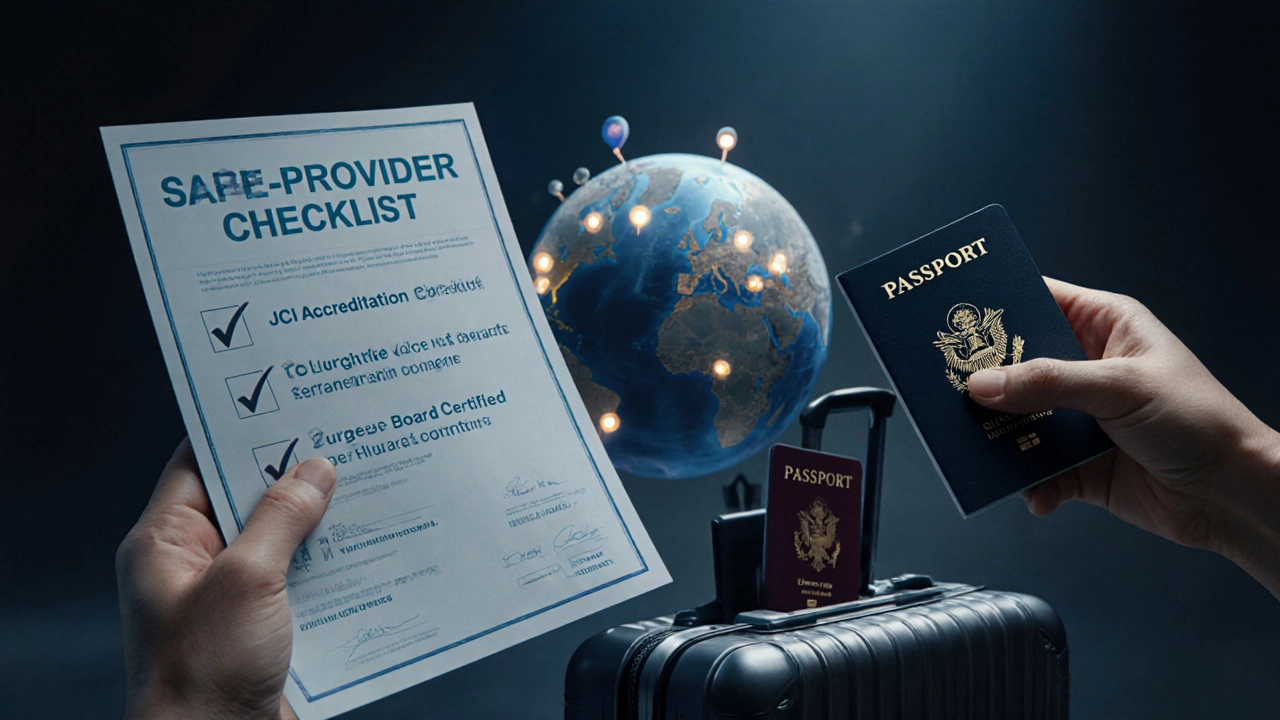
Imagine spending less than half of what you’d pay in the UK for a chest masculinization procedure, while still getting board‑certified surgeons and modern facilities. That isn’t a myth - it’s the reality of cheapest country top surgery when you look beyond your borders.
What is Top Surgery?
Top Surgery is a chest reconstruction operation that removes breast tissue and re‑contours the chest to create a masculine appearance. It is often performed for transgender men, but anyone seeking a more defined chest can benefit. The procedure usually involves an incision, removal of glandular tissue, and skin tightening. Recovery times vary, but most patients return to light activities within two weeks.
Why Look Abroad? The Rise of Medical Tourism
Medical Tourism refers to traveling to another country for healthcare that is either cheaper, higher‑quality, or both. For top surgery, the main drivers are lower surgeon fees, cheaper hospital stays, and the ability to combine recovery with a relaxing vacation. The UK’s NHS still lists top surgery as a private‑only service, and private clinics can charge upwards of £12,000 ($15,000). In contrast, clinics in many emerging markets charge a fraction of that.
Breaking Down the Costs
- Surgeon fee: The biggest chunk, covering the doctor’s time and expertise.
- Facility fee: Operating‑room costs, equipment, and nursing staff.
- Anesthesia: Usually general or IV sedation; price depends on the anesthesiologist.
- Travel & accommodation: Flights, hotels, and ground transport.
- Post‑op care: Follow‑up visits, medication, and any needed compression garments.
Understanding each line helps you compare offers fairly, rather than just looking at the headline price.

Average Top Surgery Prices by Country
| Country | Surgeon Fee | Facility + Anesthesia | Travel & Accommodation | Total Approx. |
|---|---|---|---|---|
| Thailand | $3,200 | $1,200 | $1,500 | $5,900 |
| Turkey | $3,500 | $1,100 | $1,200 | $5,800 |
| Mexico | $4,000 | $1,300 | $1,000 | $6,300 |
| India | $2,800 | $900 | $1,800 | $5,500 |
| Poland | $4,500 | $1,400 | $1,200 | $7,100 |
| United Kingdom (private) | $13,500 | $3,000 | $0 | $16,500 |
All figures are rough averages for 2025 and can shift with exchange rates or clinic promotions. The table shows why Southeast Asia and Eastern Europe dominate the affordability rankings.
Country Spotlights
Thailand
Thailand’s medical‑tourism infrastructure is world‑class. Most top‑surgery clinics in Bangkok and Phuket are accredited by the Joint Commission International (JCI). Surgeons often have training from Europe or the US, blending modern techniques with lower overhead. Patients love the ability to recover on a beach resort, which can aid healing and reduce stress.
Turkey
Turkey offers a blend of experienced plastic‑surgery faculty and competitive pricing. Istanbul’s clinics frequently advertise “all‑inclusive” packages that bundle flights, hotel, and post‑op garments. The country’s health‑tourism certification ensures clinics meet European‑style safety standards.
Mexico
For UK travelers, Mexico’s proximity (especially the western coast) cuts flight costs. Many clinics near Mexico City or Tijuana are English‑speaking and cater to LGBTQ+ patients. You’ll often find surgeons who specialize in gender‑affirming procedures, providing a comfortable environment.
India
India’s big advantage is the sheer volume of surgeries performed annually, which drives prices down. Leading hospitals in Delhi, Mumbai, and Bangalore have state‑of‑the‑art operating rooms. However, patients should verify that the surgeon is board‑certified by the Association of Plastic Surgeons of India (APSI).
Poland
Poland sits on the border of Western Europe and offers EU‑level medical standards with lower costs than the UK. Clinics in Warsaw and Krakow often provide English‑speaking coordinators, making logistics smoother for British patients.
How to Choose a Safe Provider
- Check accreditation: Look for JCI, ISO 9001, or local health‑ministry approval.
- Verify surgeon credentials: Ensure they are board‑certified in plastic or reconstructive surgery and have specific experience with top surgery.
- Read patient reviews: Real‑world feedback on forums like r/ftm or TransHealth groups often reveals hidden issues.
- Ask about post‑op support: Does the clinic provide a local nurse visit or tele‑medicine follow‑up for international patients?
- Confirm all costs up front: Request a detailed quote that separates surgeon, facility, anesthesia, and any hidden fees.
Skipping any of these steps can turn a cheap deal into a costly nightmare.

Hidden Costs to Watch For
- Travel insurance for medical procedures: Not all standard policies cover elective surgery abroad.
- Visa fees: Some countries require a medical‑tourist visa that adds a few hundred dollars.
- Extended stay: If complications arise, you may need extra nights, which can quickly increase the budget.
- Medication procurement: Certain painkillers or antibiotics may not be available without a local prescription.
Tips to Stretch Your Budget Further
- Book flights during off‑peak seasons - you can shave $300‑$500 off the travel cost.
- Combine surgery with a vacation: many clinics partner with hotels that offer “recovery packages.”
- Ask the clinic if they offer a payment plan or discount for cash payments.
- Use a reputable medical‑tourism broker - they can negotiate better rates and handle logistics.
- Check whether your private health insurance offers any partial reimbursement for overseas procedures.
Is It Worth It?
When you compare a $5,800 package in Turkey to a $16,500 private UK quote, the savings are obvious. But the decision isn’t just about money. You’ll be in an unfamiliar environment, possibly dealing with language barriers, and you’ll need a trusted local contact. If you’re comfortable with these challenges and do thorough research, opting for a cheaper country can be a smart, life‑changing move.
Is it safe to travel for top surgery?
Safety depends on the clinic’s accreditation, the surgeon’s credentials, and your own preparation. Choosing JCI‑accredited facilities and board‑certified surgeons dramatically lowers risk.
What’s the typical recovery time abroad?
Most patients resume light activity after 10‑14 days. Full healing of scar tissue can take up to 6 months, regardless of location.
Do I need a special visa for medical tourism?
Many countries offer a short‑term medical‑tourist visa that can be obtained online. Check the embassy website of your chosen destination for exact requirements.
Can I use UK insurance for surgery abroad?
Some private insurers reimburse a portion if the provider is listed in their network. Call your insurer early to confirm coverage.
How do I find reliable patient reviews?
Forums like r/ftm, TransHealth, and dedicated gender‑affirming surgery review sites are gold mines. Look for detailed posts about pre‑op communication, post‑op care, and any complications.